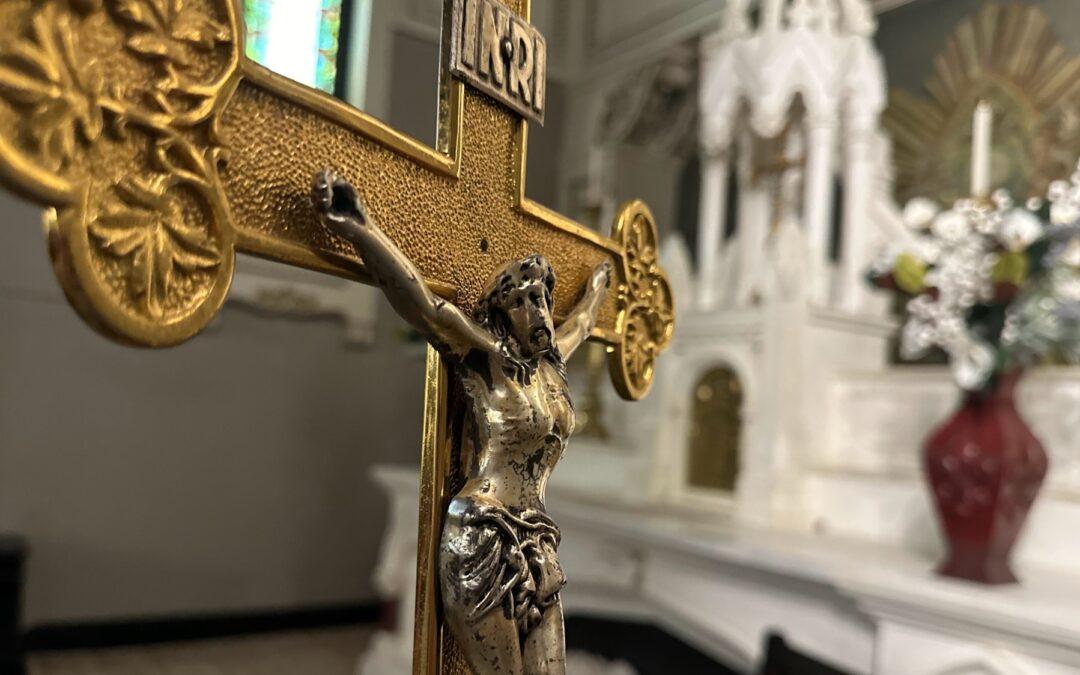Dear Friends,
I was talking with a friend today and she said, “I find Easter a letdown. Lent is so full of the self-improvement activities of prayer, fasting, and almsgiving. I add prayers to my usual prayer time, I give alms to special organizations, and I fast, not from food, but from things keeping me from closeness to God. Then comes Easter. The first week is always a joy, but what follows it is emptiness.”
I agreed with her that our Catholic practice doesn’t teach us to do anything special during these fifty days. So instead of experiencing the fullness of God’s grace, the season becomessimply a transition to summer when we may tend to leave God behind completely for the sake of vacations.
I think the Church’s hope is that what you practiced for the forty days of Lent will become a habit you continue into the Easter season and beyond. However, maybe we need to be clearer about that. And, hopefully, your Lenten practices were not so burdensome that you wouldn’t desire to keep them going in the Easter season.
Here is an idea, maybe you and I could take what the Church does during Easter and use that in our own relationship with God. The Church takes everything she normally does and during the Easter season focuses those normal things on the wonder of the gift of the Paschal Mystery. For example, the daily Mass readings take us with the disciples through the book of the Acts of the Apostles to remember what amazing things happenedthrough the work of average men and women.
The Scripture selections in The Liturgy of the Hours are also richly full. Each week there are passages from Romans:
The word is near you, on your lips and in your heart (that is the word of faith which we preach) (10:8).
If we have died with Christ, we believe that we are also to live with him (6:8).
If the Spirit of him who raised Jesus from the dead dwells in you, then he who raised Jesus from the dead will bring your mortal bodies to life also, through his Spirit dwelling in you (8:11).
Both in life and death we are the Lord’s (14:8).
Each Morning and Evening Prayer in The Liturgy of the Hours includes intercessions, and during the Easter Season they elaborate the implications of Christ’s resurrection:
Lord Jesus, light shining in the darkness, you lead your people into life, and give our mortal nature the gift of holiness, — may we spend this day in praise of your glory.
You laid death low, and brought us new life, — grant that we may walk today in this new life.
Now that the old leaven of wickedness and evil is destroyed, —may we always feed on the unleavened bread of sincerity and truth.
Light, new life, hope, dwelling in beauty, sincerity and truth: these are gifts of the Risen Christ. They remind us that all is from God and take the pressure off our own efforts; they let us bask in the gifts. These Easter gifts fundamentally change our lives, so it’s not that we just bask in their warmth while surfing the web or reading a novel. Our whole approach to life looks different through Easter eyes. We are radically changed—into people of the light. As prayers in The Liturgy of Hours would put it:
At the lakeside you prepared bread and fish for your disciples,— grant that we may never allow others to die of hunger.
Remember the lonely, the orphaned and the widowed, — and do not abandon those who have been reconciled with you by the death of your Son.
You make all things new, and command us to wait and watch for your kingdom, — grant that the more we look forward to a new heaven and a new earth, the more we may seek to better this present world.
Easter is a way of life for Christians. Our Lenten practices simply prepared us better for this lifetime season.
Peace,
Fr. Damian



